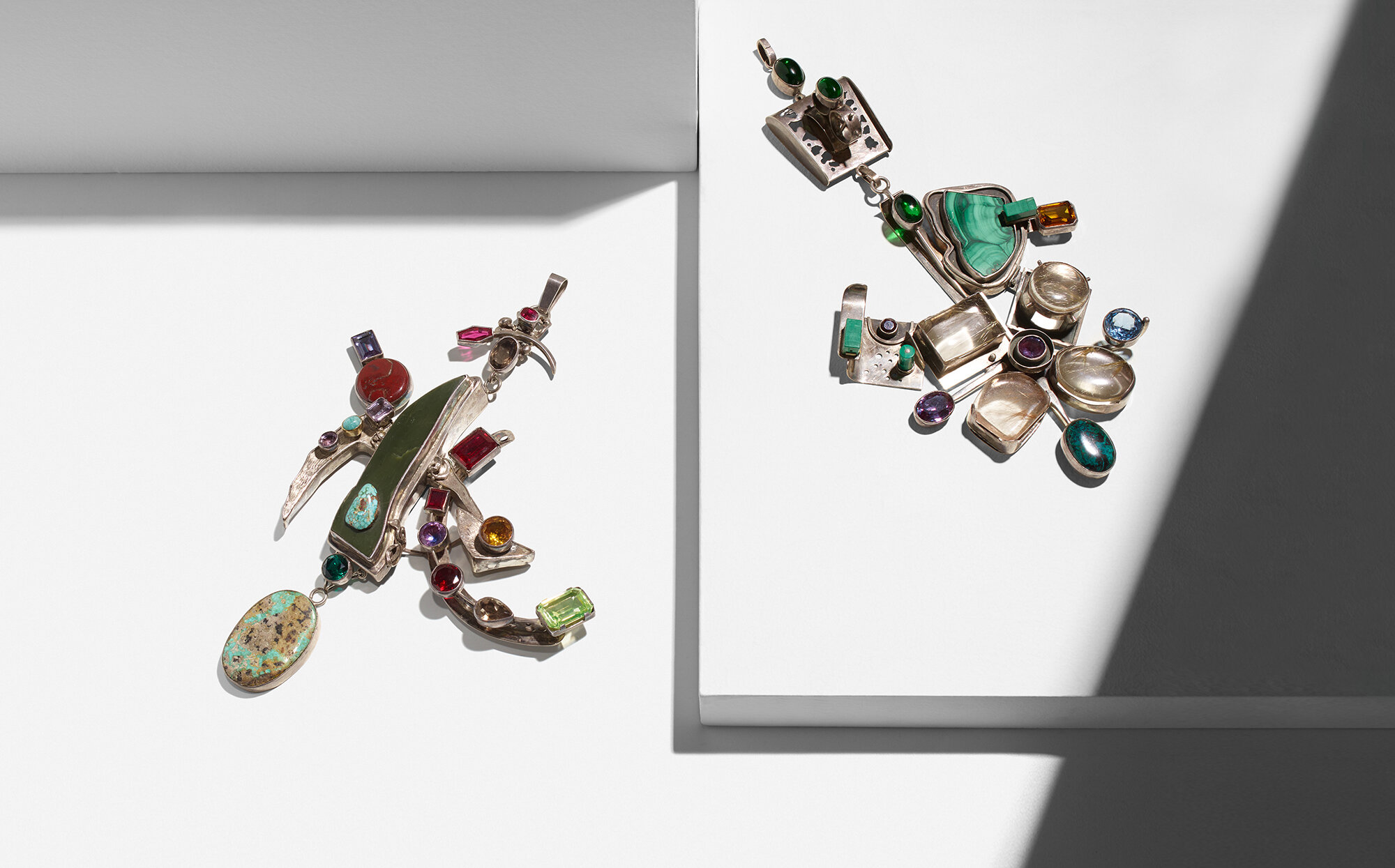128
128
USA, 1988
acrylic 1 d × 3 dia in (3 × 8 cm)
acrylic 1 d × 3 dia in (3 × 8 cm)
estimate: $3,000–5,000
follow artist
Signed to reverse ‘Lisa Gralnick’.
provenance: Collection of Susan Grant Lewin
literature: Master Metalsmith: Lisa Gralnick, Scene of the Crime, Metal Museum, pg. 13 illustrates this example


























